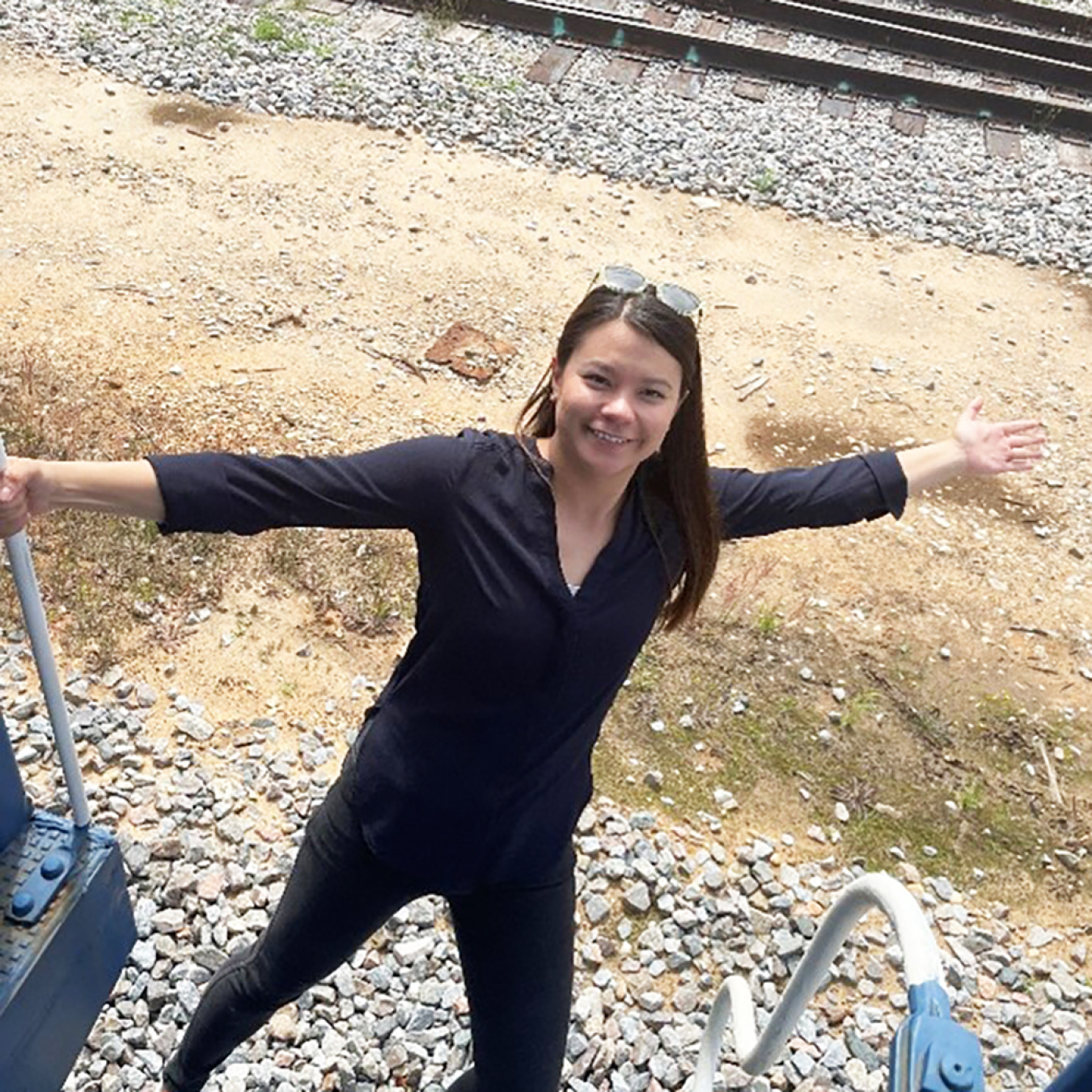Meet Alexa Erickson. When she's not conquering the great outdoors she's making the world more secure from nuclear threats for NNSA.
National Nuclear Security Administration
May 26, 2023
How do you support NNSA?
I am a Foreign Affairs Specialist responsible for nuclear material removal and elimination in the Americas and Middle East. I also lead an initiative on reducing the threats targeting nuclear infrastructure at decommissioning research reactors.
What is your personal or cultural background, and how has that shaped you and your approach to your career?
I am half Filipina. My mother is from the Philippines, and my father is German and Norwegian. I grew up in eastern Washington state with little to no diversity in the community. I have a love of foreign languages and originally wanted to be a linguist. Because I grew up in a rural area, my high school only offered French, Spanish, and German. As my father’s side of the family is of German and Norwegian heritage, I started taking German in high school and excelled in it in college.
I soon realized I was interested in a more practical field and instead double-majored in German and International Studies, after which I hoped to be a Foreign Service Officer. I took a class that simulated the Six Party Talks to Denuclearize North Korea. It was this class that piqued my interest in nuclear security. We were divided into delegations, each representing the six parties involved in the negotiations. The political and diplomatic drama that unfolded was like a reality TV show, and it was so much fun – but most of all, I was fascinated by the nuclear security and nonproliferation subject matter.
One of my adjunct professors at the University of Washington worked at Pacific Northwest National Laboratory (PNNL) and let me know about a Research Associate opportunity there. I landed the job out of undergrad and became even more invested in a career in nuclear security. I pivoted from dreams of the Foreign Service to devoting my career to nonproliferation. I left PNNL after almost three years and worked at the State Department, and later DOE/NNSA throughout graduate school at Georgetown University. I became a federal employee after I graduated and I have been with DOE/NNSA ever since.
My job necessitates that I work closely with international partners from all over the world. Given my multicultural background and the experiences I had growing up in a less diverse area, I try to approach my interactions with my international partners with as much respect and open mindedness as possible. By being aware of cultural sensitivities and nuances, I find that my partnerships are stronger.
The Office of Defense Nuclear Nonproliferation’s work involves near-daily interaction with international partners. I don’t think we can be good partners and have successful cooperation without awareness and respect of our partners’ cultures.
What is the best part about your job?
I like that my office’s successes are tangible and I am always working towards measurable milestones. I appreciate working towards a mission that I find fulfilling and impactful and has national security significance. An added bonus is that I truly enjoy working with my coworkers and consider them to be friends outside of work.
What is your proudest accomplishment while working at NNSA?
Successfully executing a campaign to repatriate spent highly enriched uranium from Canada to the United States during my first year in my current job.
Tell us something interesting about yourself.
I am a huge Lord of the Rings fan. I also am an accomplished outdoorswoman and spend most of my weekends having adventures in the woods. I have a three-legged beagle mix who joins me on every hike.
What advice would you have for anyone interested in a career in nuclear security?
I learned that you do not necessarily need a STEM background to make an impact in nuclear security but it is important to recognize your strengths and blind spots. Working at DOE/NNSA involves close work with the national labs and sites, and I found that learning from their expertise on the technical front while sharing my headquarters perspective is important for my success as a federal program manager.
Why do you think diversity and inclusion is important to your profession?
The Office of Defense Nuclear Nonproliferation’s work involves near-daily interaction with international partners. I don’t think we can be good partners and have successful cooperation without awareness and respect of our partners’ cultures. We are most successful in our mission when we have a variety of backgrounds represented

